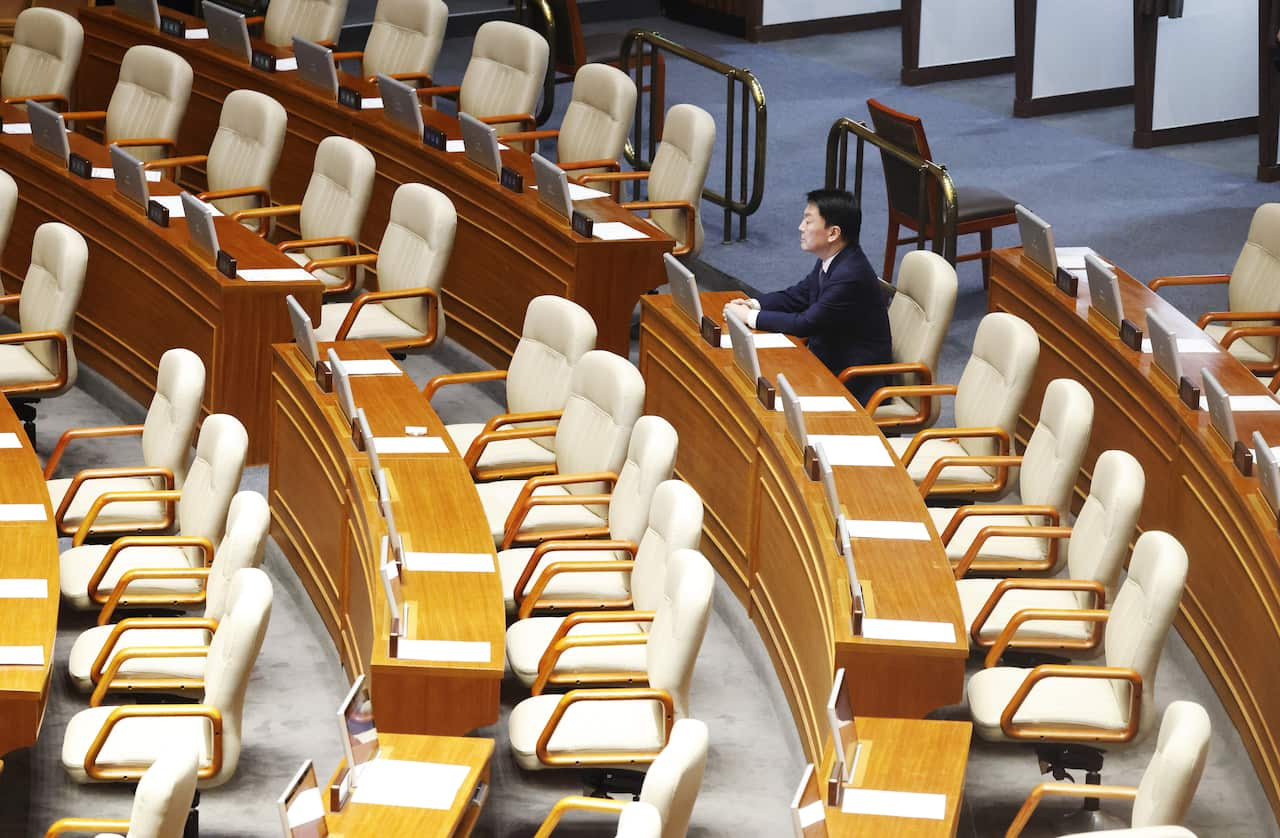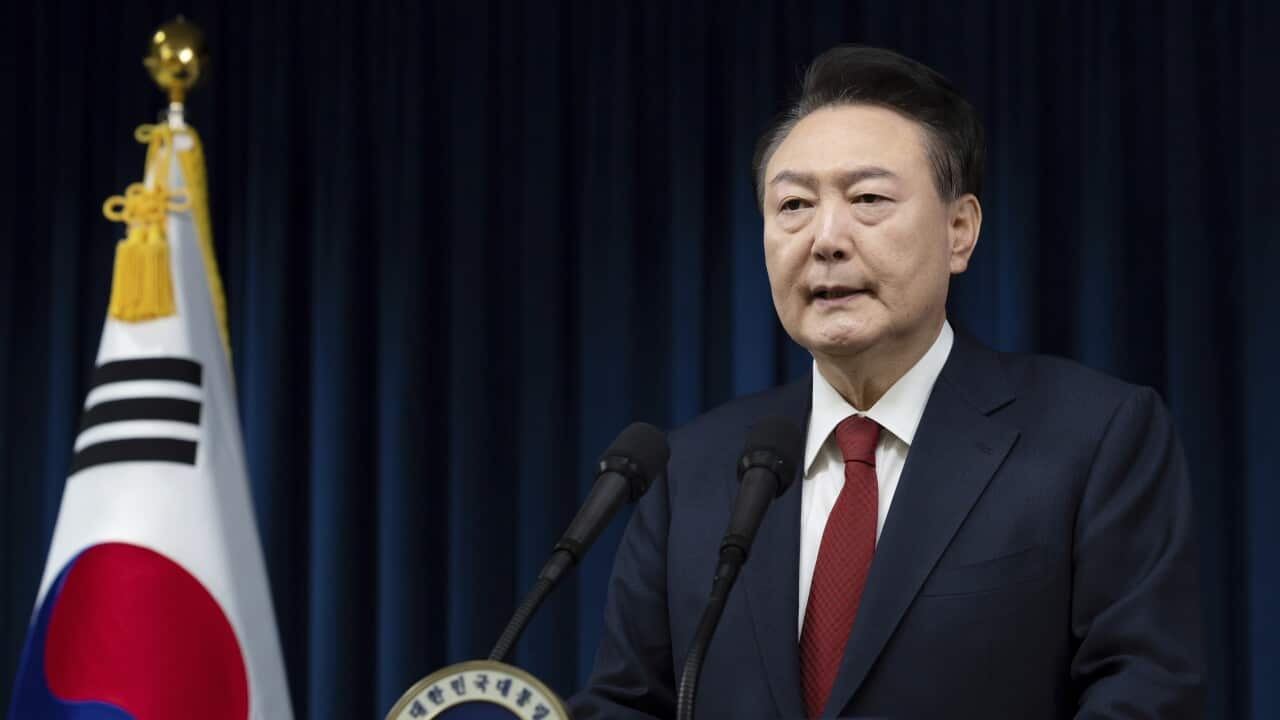South Korean President Yoon Suk Yeol has survived an impeachment motion in the opposition-led parliament that was prompted by his short-lived attempt to impose martial law this week, after members of his party boycotted the vote.
Only 195 votes were cast, below the threshold of 200 needed for the vote to count.
“The entire nation is watching the decision being made here at the National Assembly today. World is watching,” National Assembly speaker Woo Won-shik said with a sigh on Saturday.
“It’s very unfortunate that there wasn’t even a vote.”
Ahn Cheol-soo was the only member of the ruling People Power Party who remained in the National Assembly chamber, during the plenary session for the impeachment vote of President Yoon Suk Yeol. Source: AAP / Jeon Heon-Kyun
The main opposition Democratic Party had promised to revive next week if it failed on Saturday, and after the vote failed said it would not give up.
But Yoon’s People Power Party (PPP) said it would find a “more orderly, responsible” way to resolve the crisis than impeachment of the president.
Yoon shocked the nation late on Tuesday when in order to root out what he called “anti-state forces” and overcome obstructionist political opponents. He later rescinded the order.
He apologised to the nation in a speech on Saturday morning but resisted calls to resign ahead of the vote.
Yoon said he would not seek to avoid legal and political responsibility for his decision to declare martial law for the first time in South Korea in 44 years.
He said the decision was born of desperation.
Saturday’s televised speech was the embattled leader’s first public appearance since he rescinded the martial law order six hours after declaring it, when parliament defied military and police cordons to vote unanimously against his decree.
“I leave it up to my party to take steps to stabilise the political situation in the future, including the issue of my term in office,” Yoon said in the address to the nation, promising there would be no second attempt to impose martial law.
Standing in front of the South Korean flag, Yoon bowed after he finished his brief remarks, staring solemnly into the camera for a moment.
Han Dong-hoon, leader of Yoon’s ruling party, said after the address that the president was no longer in a position to carry out his public duties and his resignation was now unavoidable.
On Friday Han said Yoon was a danger to the country and needed to be removed from power, increasing the pressure on Yoon to quit even though PPP members later reaffirmed a formal opposition to his impeachment.
If Yoon leaves office before his single five-year term ends in May 2027, the constitution requires a presidential election to be held within 60 days of his departure.
Martial law has been declared more than a dozen times since South Korea was established as a republic in 1948, the last time in 1980.

